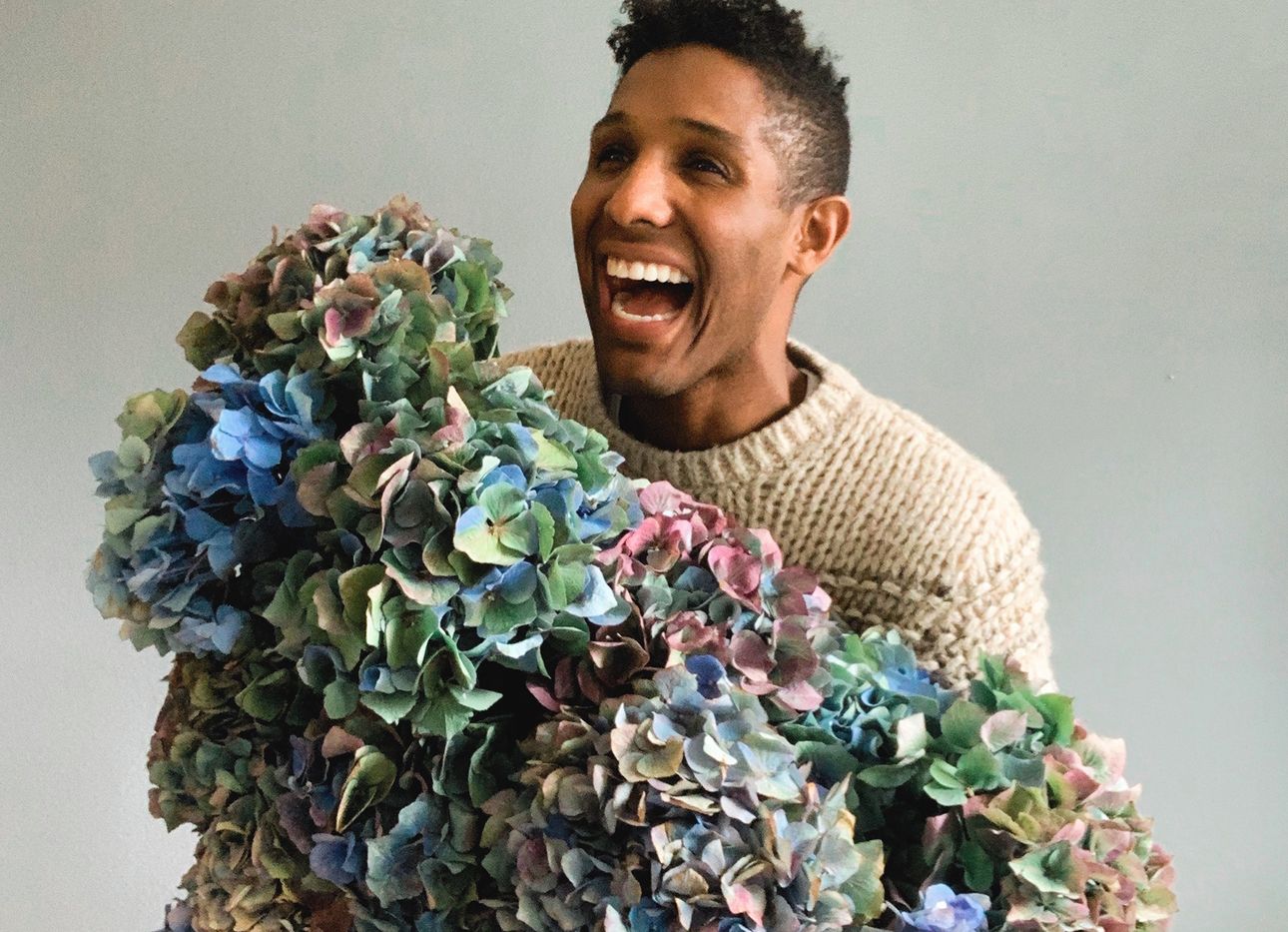
The Therapeutic Power of Flowers
Kristen Griffith-VanderYacht, founder of Wild Bloom Floral in Seattle, and the head judge of Netflix’s The Big Flower Fight—essentially, the fantastical floral equivalent of The Great British Baking Show—knows the power of an impactful blossom. Here, he tells us why a fabulous arrangement activates all the senses, and is rarely without an equally memorable scent.
How did you find your way into the world of florals?
I truly feel like florals found me. Florals are one of the things that I discovered by accident, and fell in love with over time. I was living in New York City, with my now husband, then boyfriend, and it started out as a hobby: me just trying to bring something into the apartment to make it feel more like a home, and to brighten up the space. Anyone who lives in New York City, or any sort of gray, urban area, knows that those apartments are not the height of elegance, so anything you can do to bring a little bit of joy into your space is really important. That’s how flowers started out for me. From there, it really grew into a passion. And then I just couldn’t stop!
In what way do the five senses, and specifically scent, factor into your work?
Visually, you’re working with colors, and there are many considerations to think about while blending and creating contrast. When it comes to touch, flowers are enticing: By nature, they invite pollinators to come and swim around their yummy pollen so they can go back to fertilize and pollinate other flowers. Humans feel that inviting quality, too. With scent, you’re engaging the sense that’s in your nose—you’re smelling the flowers. And that can instantaneously transport you into a memory. You might smell a peony and think about a loved relative that is no longer here, or you may think about your partner, and be reminded of their scent. Or, you may smell a rose and think, Oh, wow, this reminds me of my graduation, when I finally dumped that loser!, and feel empowered all over again. [Laughs]
Many times I have described florals as food, too—you may not be able to taste flowers, as not all of them are edible, but they really do engage you in that way. You can look at a really beautiful, dark red bouquet, and think of cherries. It’s this transferrable narrative that exists because flowers are a part of nature, and our senses are a part of nature.
What are some of your favorite floral scents?
Oh gosh, there are so many! It really depends. I would say the flower that I get the most use out of is lavender, which I love to use for floral arrangements. I also love lavender for dessert: I make a simple syrup from lavender, I make cakes out of lavender; you can also make essential oils out of lavender. Like, the gifts just keep on coming. It’s one of the most versatile flowers that I’ve encountered.
In this time of prolonged social distancing, what does the gesture of making or gifting a bouquet mean to you?
Flowers are self-care, period. Because our bodies, right now, are like a dog who wants to stick its head out the window when it’s in the car. Our bodies have an instinctual craving for a connection to the real world—and what’s more real than nature?